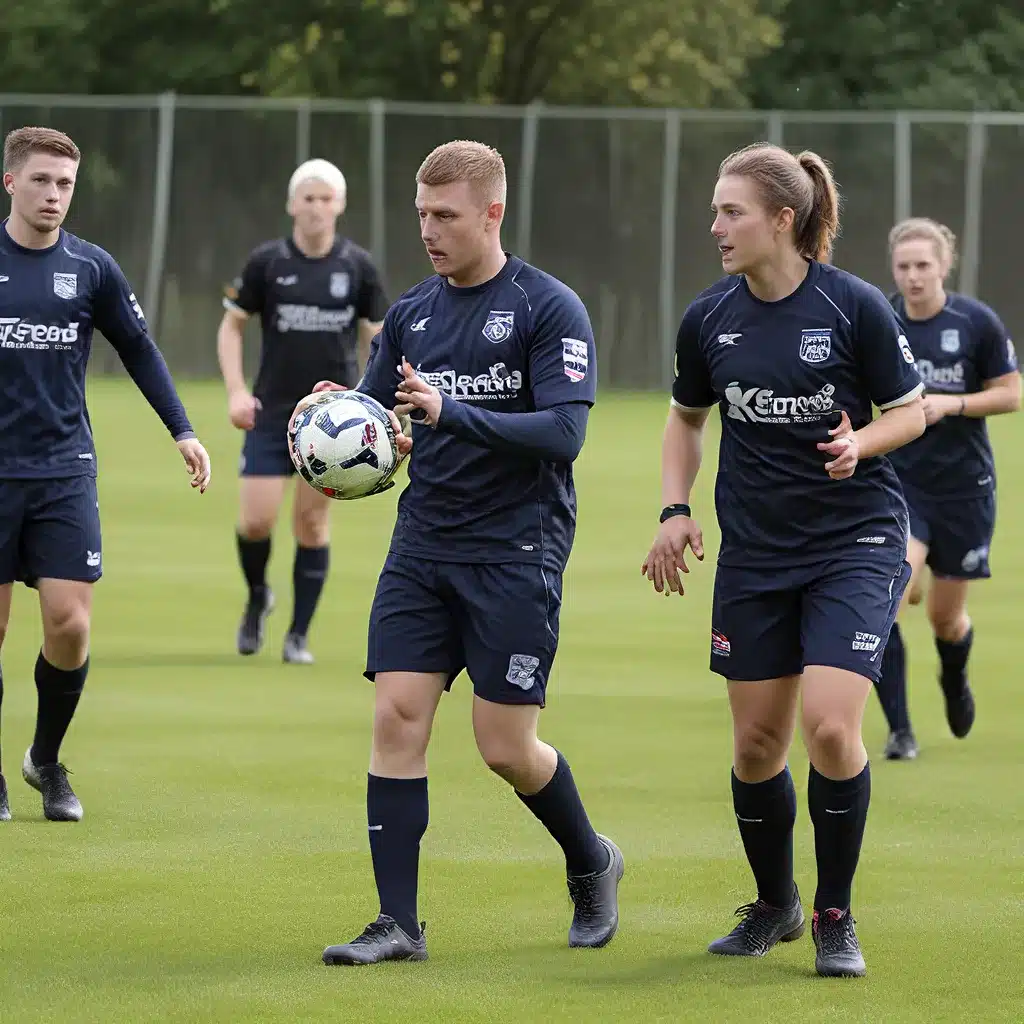
The Rise of Tactical Versatility
As the Kent Football League has evolved over the years, so too have the tactical approaches adopted by the clubs competing within it. Gone are the days of rigid formations and predictable game plans. Instead, the modern Kent footballer has become a master of adaptability, able to seamlessly transition between different systems and playing styles as the situation demands.
At the forefront of this tactical revolution is Faversham Town, a club that has long been recognized for its innovative approach to the game. Under the tutelage of manager Liam Daish, the Lilywhites have developed a reputation for their ability to outmaneuver their opponents, often catching them off guard with unexpected tactical switches.
“The key is being able to think on your feet,” Daish explains. “In today’s game, you can’t afford to be one-dimensional. You need to have a range of options at your disposal, and the willingness to implement them as the match unfolds.”
This sentiment is echoed by Ramsgate FC manager Tommy Warrilow, whose side has also embraced the importance of tactical flexibility. “It’s all about reading the game and being able to adjust accordingly,” he says. “Sometimes that might mean shifting to a more defensive setup, while on other occasions, it’s about going all-out in pursuit of the win.”
Adapting to the Demands of Modern Football
The drive towards tactical versatility in the Kent Football League has been fueled by the ever-evolving demands of the modern game. As the pace of play has increased and the level of opposition has intensified, clubs have been forced to re-evaluate their approach, often drawing inspiration from the tactical innovations observed at the highest levels of the sport.
“The game has become so much faster and more technically demanding,” notes Daish. “To be successful, you need players who are comfortable with the ball, who can make quick decisions, and who are willing to take calculated risks.”
This emphasis on technical proficiency and decision-making has had a profound impact on the recruitment strategies of Kent clubs. Gone are the days when a team could rely solely on physicality and grit to grind out results. Instead, the most successful sides are those that have invested in technically gifted players who can thrive in the fast-paced, tactically complex environment of modern football.
Tactical Innovations and Matchday Adaptations
One of the most striking examples of this tactical evolution can be seen in the way Kent clubs approach their matchday preparations. Where once teams might have adhered to a rigid game plan, the modern Kent footballer is expected to be adept at interpreting and responding to the ebb and flow of a match.
“It’s all about reading the game and being able to react accordingly,” explains Warrilow. “That might mean switching formations, altering our pressing approach, or even adjusting our positional responsibilities on the fly.”
This capacity for in-game adaptations has been particularly evident in the high-stakes clashes between Kent’s biggest rivals. Take, for instance, the recent encounter between Ramsgate FC and Faversham Town, where both sides demonstrated their ability to outmaneuver each other throughout the 90 minutes.
“It was a real chess match out there,” recalls Daish. “We started with one setup, but as the game progressed, we had to adjust our approach to counter Ramsgate’s tactical tweaks. It was a constantly evolving battle, and in the end, it was the team that could think and react the quickest that came out on top.”
The Impact on Player Development
The emphasis on tactical versatility has also had a profound impact on the way Kent clubs approach player development. Gone are the days when young players could simply be pigeonholed into a single role or position. Instead, the most promising prospects are those who can demonstrate a diverse skillset and the ability to adapt to various tactical demands.
“We’re looking for well-rounded players who can thrive in multiple positions and systems,” says Daish. “It’s not enough to just be good at one thing anymore. You need to be able to read the game, make quick decisions, and contribute to the team’s overall tactical approach.”
This focus on tactical education has led to the emergence of a new generation of Kent footballers who are not only technically gifted but also highly adaptable and strategically astute. Players like Ollie Boulding of Faversham Town and Alfie Pavey of Ramsgate FC have become the embodiment of this tactical evolution, seamlessly transitioning between different roles and responsibilities as the match situation demands.
The Future of Kent Football
As the Kent Football League continues to evolve, it’s clear that the ability to adapt and innovate will be the key to success. Clubs that can embrace the tactical versatility required by the modern game will be the ones that thrive, while those that cling to outdated approaches will struggle to keep pace.
“The landscape is constantly shifting,” warns Warrilow. “If you’re not willing to evolve and embrace new ideas, you’re going to get left behind. The teams that stay ahead of the curve and push the boundaries of tactical innovation are the ones that will ultimately come out on top.”
For the passionate fans of Kent football, this promise of tactical evolution and strategic adaptability is an exciting prospect. As the clubs in the league continue to push the boundaries of what’s possible, the future of the Kent Football League looks brighter than ever before.

